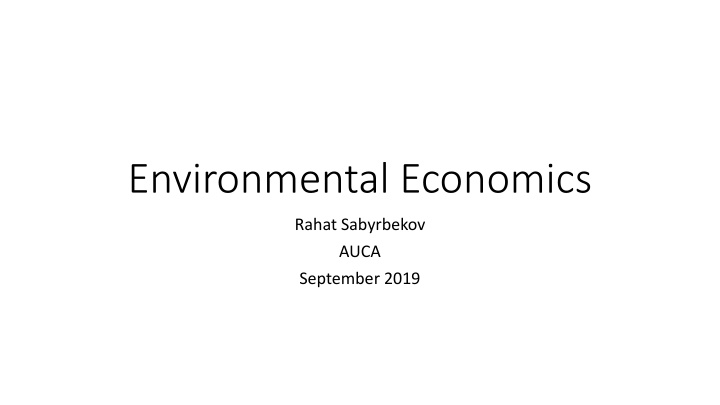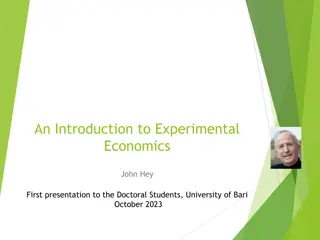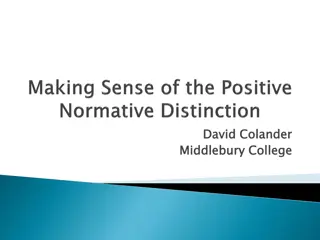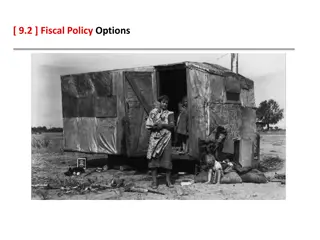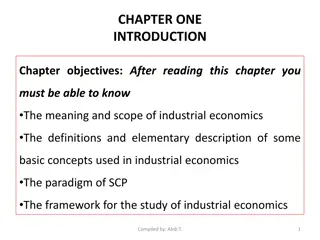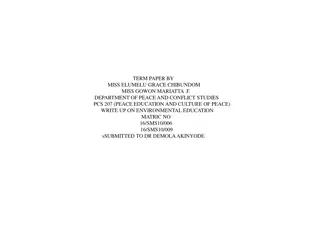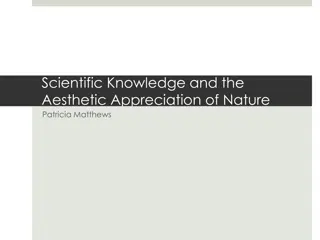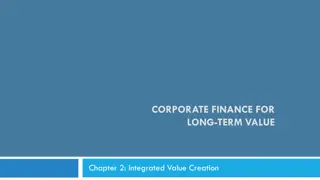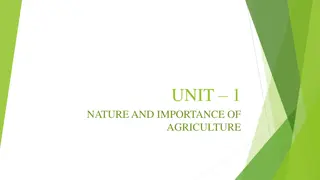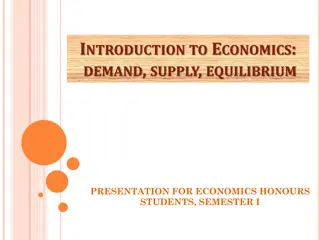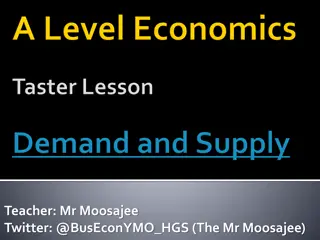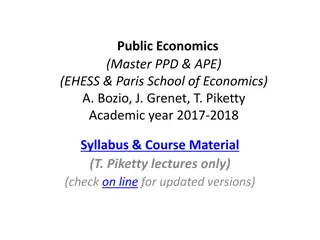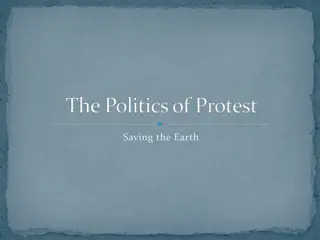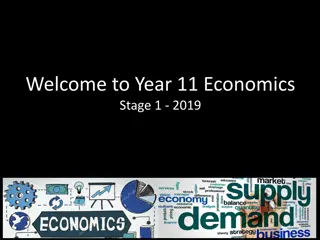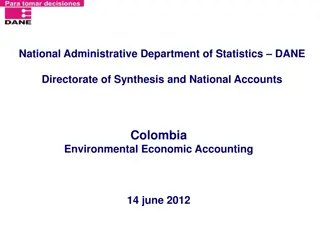Evolution of Environmental Economics and Nature's Value
Delve into the historical roots of valuing nature in economics, from ancient civilizations to modern ideologies like neoclassical economics. Explore key figures and pivotal moments shaping the discourse on nature's worth and economic implications. Uncover the shifting perspectives towards natural capital and the emerging field of environmental economics, addressing the challenges and opportunities of integrating nature into economic frameworks.
Download Presentation

Please find below an Image/Link to download the presentation.
The content on the website is provided AS IS for your information and personal use only. It may not be sold, licensed, or shared on other websites without obtaining consent from the author.If you encounter any issues during the download, it is possible that the publisher has removed the file from their server.
You are allowed to download the files provided on this website for personal or commercial use, subject to the condition that they are used lawfully. All files are the property of their respective owners.
The content on the website is provided AS IS for your information and personal use only. It may not be sold, licensed, or shared on other websites without obtaining consent from the author.
E N D
Presentation Transcript
Environmental Economics Rahat Sabyrbekov AUCA September 2019
From History of Economic Thought From ancient history humans well understood the value of nature The wind helps grind grain, bees pollinate crops, water flows from the mountains for irrigation David Riccardo, Thomas Malthus, Stuart Mill and other economists on the production function of nature 2
Value and valuation of nature What is the price of nature? Do we need it? With the advent of the neoclassical school, the focus has been on cost. Economic models suggested the interchangeability of natural and produced capital The beginning of the twentieth century - the first attempts to monetize the benefits of nature 3
Nature in Economics Nature in Economics Pigou (1920) - taxes and subsidies - external factors of production Hotelling (1931) - the price of using mineral resources Krutilla (1967) - about non-market benefits and environmental quality 4
The conquest of nature by man The conquest of nature by man The second half of the twentieth century Economic growth was measured only by the quantity of goods and services produced. Natural capital as one of the alternatives for ensuring the well-being of society 5
Lords of the Earth? . . 6
Price of Economic Growth XX century a new discipline - environmental economics 1981 . Ecosystem services & goods . . 7
Environmental Economics The new challenges lead to the rethinking of the fundamentals of Economics
Visions of Future Visions of Future In 1798, Thomas Malthus published his classic An Essay on the Principle of Population, in which he foresaw a time when the urge to reproduce would cause population growth to exceed the land s potential to supply sufficient food, resulting in starvation and death. In his view, the most likely response to this crisis would involve rising death rates caused by environmental constraints.
Future Environmental Future Environmental Challenges Challenges 1. Climate Change 2. Water Accessibility According to the United Nations, about 40 percent of the world s population lives in areas with moderate-to-high water stress. By 2025, it is estimated that about two-thirds of the world s population about 5.5 billion people will live in areas facing either moderate or severe water stress. Up to 50 percent of Africa s urban residents and 75 percent of Asians are estimated to lack adequate access to a safe water supply
Meeting the Meeting the Challenges Challenges As the scale of economic activity has proceeded steadily upward, the scope of environmental problems triggered by that activity has transcended both geographic and generational boundaries. International cooperation Countries that unilaterally set out to improve the global environmental situation run the risk of making their businesses vulnerable to competition from less conscientious nations. Market incentives are not always consistent with promoting sustainable outcomes. Currently, many individuals and institutions have a large stake in maintaining the status quo, even when it poses an existential threat.
How Will Societies Respond How Will Societies Respond? ? Feedback loops Positive (investment, GHG) Negative (Gaia Hypothesis) Role of Economics How societies respond to challenges will depend largely on the behavior of humans acting individually or collectively. Economic analysis provides an incredibly useful set of tools for anyone interested in understanding and/or modifying human behavior, particularly in the face of scarcity. The Use of Models
The Road The Road Ahead Ahead Are current societies on a self-destructive path? Environmental and natural resource economics provide a firm basis for understanding the behavioral sources of environmental problems, but it also provides a firm foundation for crafting specific solutions to them. Market forces are extremely powerful. Attempts to solve environmental problems that ignore these forces run a high risk of failure. Where normal market forces are compatible with efficient and sustainable outcomes, those outcomes can be supported and reinforced.
